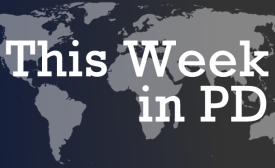soft power

Tourism and nation branding have the potential to boost a country's soft power and convey values and culture. However, it's not always a win-win situation for governments (or tourists).
This is succession planning. It's about laying down memories in Australia against the time the Queen dies. The first tour is the one that matters – the tour with the young couple and the baby, the gloss not worn off their marriage and possible princely misdemeanours of the child far in the future.
When, fifteen years ago, Vladimir Putin was appointed Prime Minister under the ailing Boris Yeltsin, few would have thought that he was to become one of Russia’s longest-serving political leaders in living memory.
The news that the ABC is to establish an ‘online portal’ in China that will allow it to ‘represent and sell media content across China’ has been greeted with understandable enthusiasm by the ABC.
The soft-power age has almost ended. The key players of global politics no longer use their soft power to influence other states, nor the general route of international politics. Worse, there are not many actors with the ability to perform decisively at the international level.
Despite much diplomatic effort, the situation in Ukraine worsens. A coordinated Russian campaign, including an invasion threat, special operations destabilization in eastern Ukraine patterned on the Crimea model, and warnings of gas cutoffs document ever more clearly Vladimir Putin’s aim to cripple the Ukrainian government and control much or even all of this strategically vital European country.
In May 2012, the law school at George Mason University hosted a forum billed as a “vibrant discussion” about Internet search competition. Many of the major players in the field were there — regulators from the Federal Trade Commission, federal and state prosecutors, top congressional staffers.
As Friday's curtain came down on this year's Boao Forum for Asia (BFA), a public diplomacy event, the lasting effect on China should be progress and reform. It is fair to say that the four days of the conference, covering sixty topics and attracting over 3,000 global figures from all walks of life, were a good example of public diplomacy itself.







